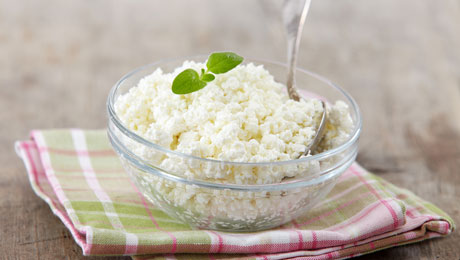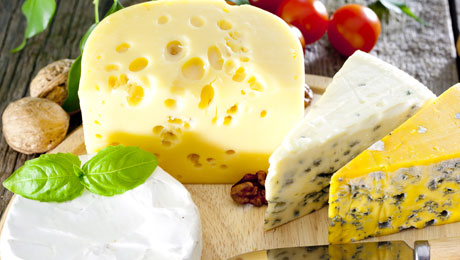Pictures: www.clickatlife.gr
If you want to live longer, feel better and lose weight, the solution is … in your refrigerator. Dairy products are very good for your health and you can include them in your diet in various ways. Read 12 of them.
Some kinds of cheese have anti-inflammatory properties
Scientists have confirmed that Roquefort has anti-inflammatory properties, offering protection against heart disease. It has also helped to reduce the incidence of heart disease in France. Researchers hope to use its beneficial qualities in medicine and anti-ageing therapies. All kinds of fermented cheese, such as Camembert, have these properties and if you don’t like Roquefort, you have other options, too.
Fermented cheese and dairy products reduce the risk of diabetes
According to studies, there is a 12% lower risk of diabetes in people who eat at least 55 g (or two pieces) of cheese per day compared to people who do not eat cheese. Scientists believe that this could be due to probiotic bacteria contained in cheese and yogurt which can reduce cholesterol and create certain vitamins acting like a shield against diabetes.

Eating cheese after the main course prevents tooth decay
Eating cheese help prevent the acids sticking to your teeth. Calcium and phosphorus contained in cheese mix together with bacteria and prevent the increase of acids. A small piece of cheese per meal can be ... miraculous.
Consumption of dairy products helps against insomnia
People who suffer from insomnia can benefit from natural proteins contained in milk and in this way improve the quality of sleep. Furthermore, tryptophan increases serotonin and melatonin levels, which allows better sleep. Unlike turkey meat that makes us feel bloated, one of the benefits of milk, cheese and yogurt is that they are easy for the stomach to digest and rich in calcium, which leads to the conversion of tryptophan in soothing melatonin.
You can eat cheese even if you have lactose intolerance
Mature cheese (such as Asiago, Parmesan or blue cheese) contains little or no lactose. Therefore, even people with lactose intolerance can consume ripe cheese, since lactose has turned from bacteria into lactic acid. The majority of lactose is removed when ripened cheese is separated from the whey during preparation, so that it does not create any problems.

Combine spicy foods with some dairy products in order to make them less hot
Drinking milk after a spicy dish or combining spicy food with a few spoons of yogurt will decrease hotness. In India, parents often mix yogurt with spicy food in order to help their children eat them. Thus, they do not to have to prepare many different dishes for the whole family.
Dairy products create a feeling of satiety
Adding cheese to a snack or rich sandwich can keep you satiated for a long time. According to surveys, children who combine snacks with cheese and vegetables, consume 72% less calories compared to kids who eat just crisps.
An ideal source of proteins
Even though the main sources of proteins include chicken, fish and beans, cheese is also among protein-rich foods. Hard cheese, such as parmesan, has a higher protein content compared to soft cheese.

You can prevent the formation of mould
Just wrap the cheese in a paper napkin soaked in white vinegar and put it in a plastic bag in the refrigerator. The acid from the vinegar prevents the formation of mould. Some people think that vinegar may affect the taste of cheese. In this case, you can use a vegetable peeler in order to remove the mould. In general, when cheese becomes mouldy on the inside (except for blue cheese and cottage cheese), you can remove up to 3 cm around the mould and use the remaining cheese.
Keep the cheese rind
Peels / flakes of Parmesan and other kinds of cheese are ideal for flavouring soups, pizzas and other dishes. Of course, many stores sell cheese rind at lower prices for this purpose.
You can make cheese healthier
Feta cheese is one of the saltiest kinds of cheese but, if you can, dip it in water for a few minutes and then rinse it well before you put it in your salad. Thus, you will reduce the level of sodium without losing flavour.